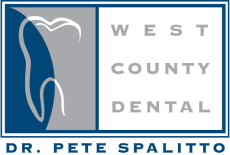
Whenever possible, a dentist will do everything he or she can to save a patient’s natural teeth. Sometimes losing on or more teeth is unavoidable, though. Thanks to new advancements in dental technology like same-day dental implants and dentures, patients now have more access to quality replacement teeth than ever before. Keep reading to find out why you should consider replacing these missing teeth:
New Teeth Increase the Function of the Mouth
Even missing one tooth can mess up the overall function of your bite. If you want to restore function to your mouth to make it easier to talk and to chew, you should consider replacement teeth solutions like same-day dental implants or dentures. These new teeth can work together with your natural teeth to restore the function of your bite.
New Teeth Help You Maintain Your Original Facial Structure
Over time, missing teeth might start to change the shape of your face. If you do not want your cheeks to sink in around the areas where you are missing teeth, it is important to look into some replacement options. Talk to your oral surgeon in St. Louis about your missing teeth and which replacement option will do the most for you to help you maintain your facial structure.
New Teeth Restore the Aesthetics of Your Smile
Even one missing tooth could have a negative impact on the aesthetics of your smile. If you are embarrassed about showing off your teeth, it might be time to think about replacement options like same-day dental implants. Your dentist can match the dental crowns to the color of your teeth to help you get a smile of which you can be proud.
New Teeth Help Surrounding Teeth
When you lose teeth, the surrounding teeth could start to suffer. Huge pockets in your gums create a lot of space in which plaque and bacteria could develop. If you do not get replacement teeth, this leaves your surrounding teeth and gums susceptible to decay and periodontal disease.


